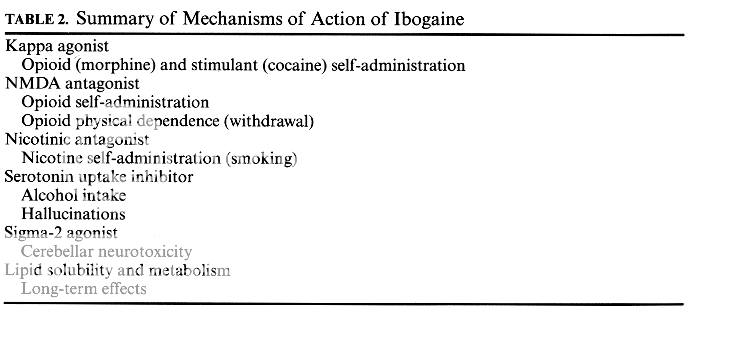I suppose that the NMDA-antagonism and the fact that noribogaine is an SSRI, also contributes to the anti-addictive effect. Addiction is often rooted in depression, and these two mechanisms are both antidepressant. Noribogaine can stay within the bloodstream for long enough to have this effect. And i believe that both ibogaïne as well as noribogaine have some dopaminergic effect as well.
I believe typical NMDA antagonist AD effects are indirect and now thought to be a result of IIRC change in LTP and learning, but I doubt that the week or fortnight long mood lift are critical to the anti-addictive effects (as in: it would suffice on its own), maybe it contributes like other NMDA antagonists can have acute AD effect, but so powerfully anti-addictive is not seen with other NMDA antagonists right?
SSRI's take a long while to change brain chemistry, like weeks (wasn't it because changes in serotonin levels take time to downregulate receptors or somesuch which provides the actual benefit?) so even the pretty long iboga therapy sessions wouldn't be long enough, even if noribogaine would stay in the blood for weeks which I highly doubt, you would just only start to see improvement when levels drop off completely. SSRI's are also notorious for causing problematic effects in that transition time, so if in this period you transition to and fro isn't that just extra destabilizing?
Not the most elegant explanation being a two-parter, but it may be that the combination of NMDA antagonism and LTP related AD effects in conjunction with the physical effects of kappa opioid activity which perhaps upregulates other receptors makes for a physical reset and a mental reset that allow a synergistic recalibration that accounts for anti-addictive effects? How it would still help with different types of addiction is still curious, can the reward pathways be rewired that quickly?
Last edited:






